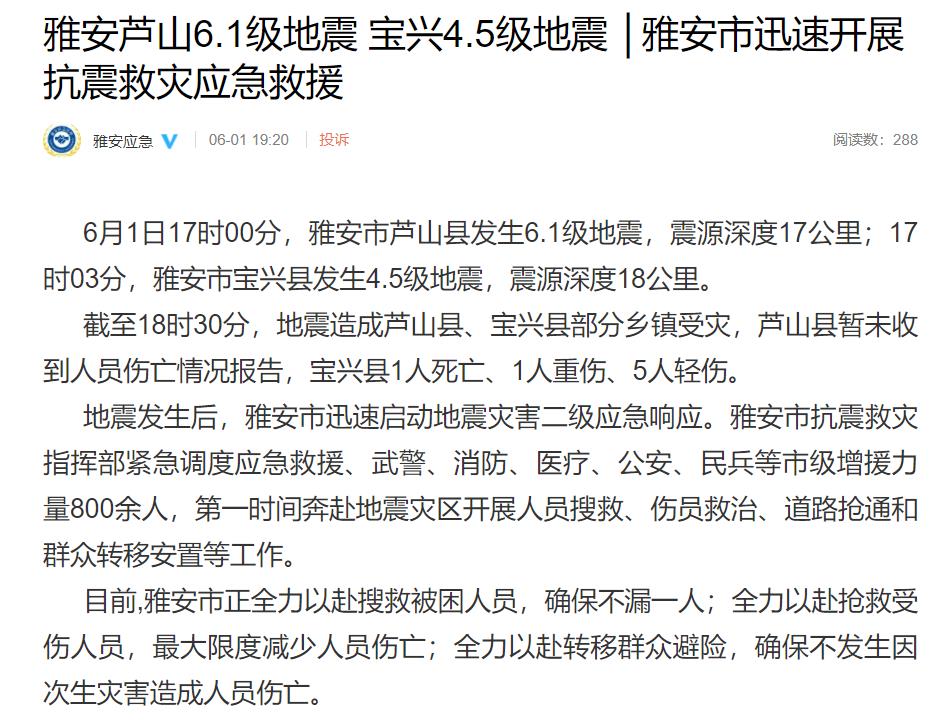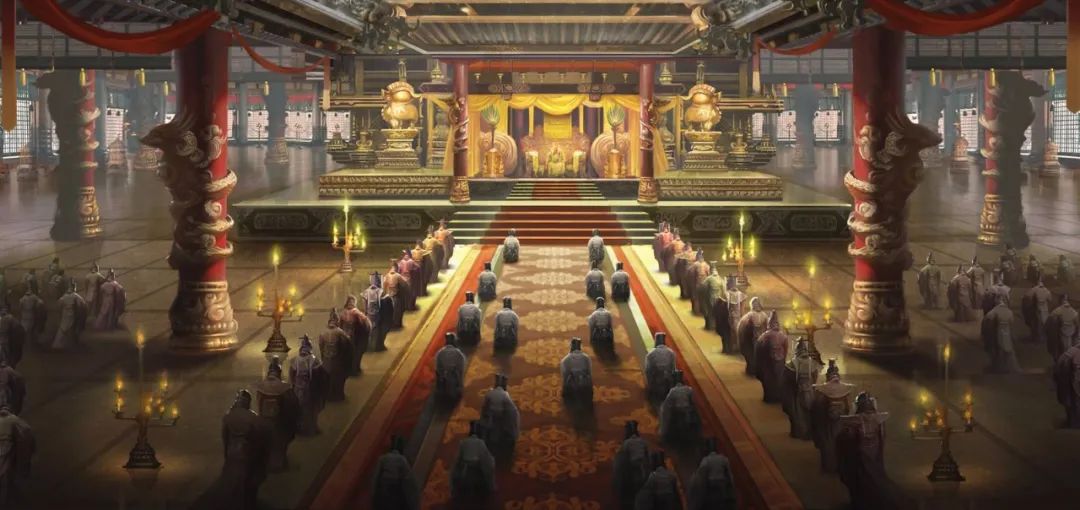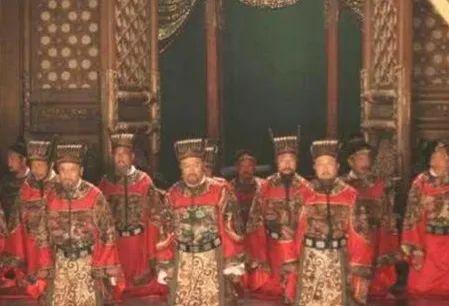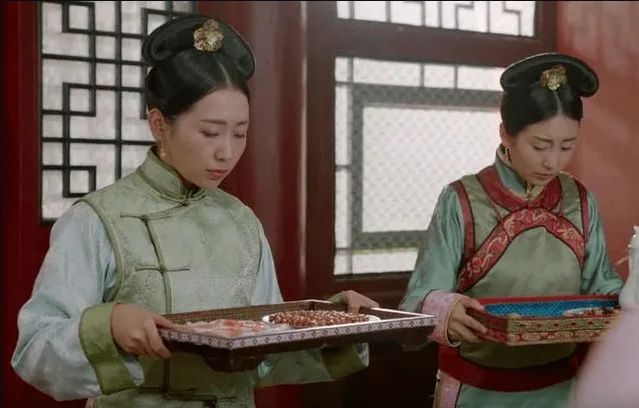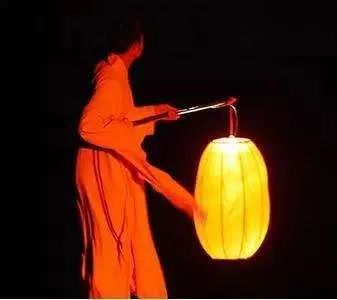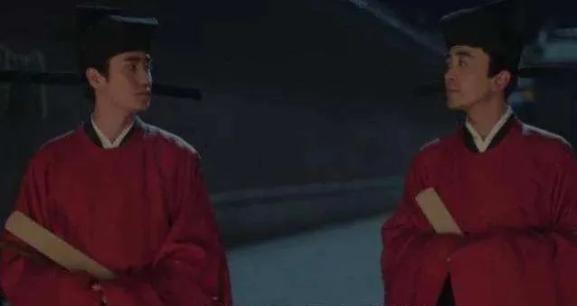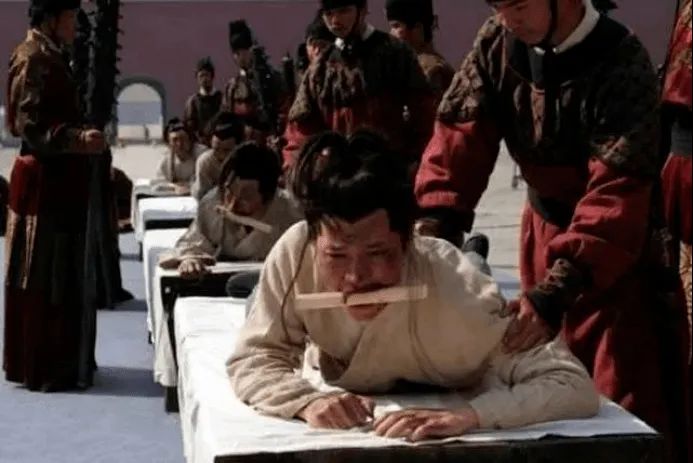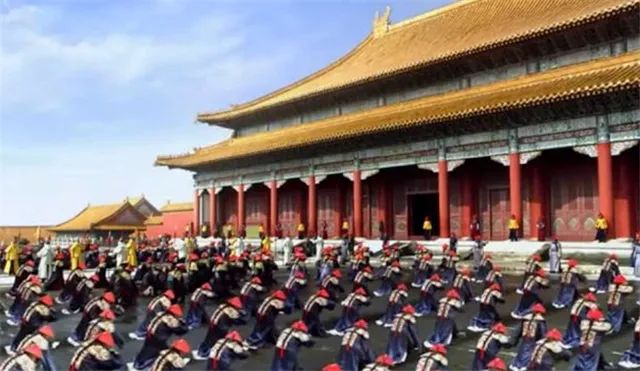BEIJING, Beijing, January 1 ST Title: Prospect of 2018 Major Events: 40th Anniversary of Reform and Opening-up of State Institutions.
Zhongxin. com reporter Ma Xueling Qi Feng Li Jinlei
With the arrival of 2018, China, which has entered a new era, has started a new journey.
Following the Communist Party of China (CPC)’s transition last year, a new leader of state institutions will be elected during the National People’s Congress this year. This year is the first year after the 19th National Congress, and also the 40th anniversary of reform and opening-up. With new historical coordinates, the development of China has attracted worldwide attention.
In addition, a series of major events related to the national economy and people’s livelihood in 2018 are also worthy of attention, including the reform of the supervision system, the national overall planning of endowment insurance, and the Chang ‘e IV’s flight to the moon.
These political events are crucial.
— — The change of state institutions
In October 2017, the 19th National Congress of the Communist Party of China drew a new blueprint for the development of China, and the first plenary session of the 19th Central Committee elected a new central leadership group.
In March this year, the National People’s Congress, the Central Government and Chinese People’s Political Consultative Conference will also complete the transition and elect a new leader.
2018 is the first year to implement the spirit of the 19th National Congress, the 40th anniversary of reform and opening-up, and a crucial year to build a well-off society in an all-round way and implement the 13th Five-Year Plan. After the re-election, in the first year of the new leadership collective’s performance, what attitude will open the situation and attract much attention.
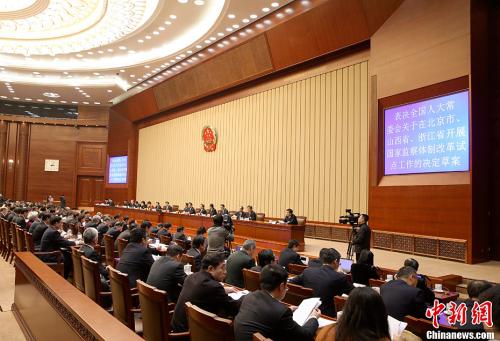
China News Service reporter Liu Zhenshe
— — Establishment of the State Supervision Commission
Since the pilot area was determined in 2016, the reform of the national supervision system has attracted much attention from public opinion at home and abroad. At present, on the basis of pilot projects in Beijing, Shanxi and Zhejiang provinces, this reform is being implemented nationwide.
At present, with the ongoing meeting of local people’s congresses, three-level supervisory committees of provinces, cities and counties are also being established one after another.
According to the plan, during the two sessions of the National People’s Congress in March this year, the draft State Supervision Law will be reviewed, and the the National Supervisory Commission (NSC) will also be established. As a national anti-corruption agency with China characteristics, how does the State Supervision Commission start? How does the national supervision law, as an anti-corruption national legislation, show its power? These have attracted the attention of the outside world.
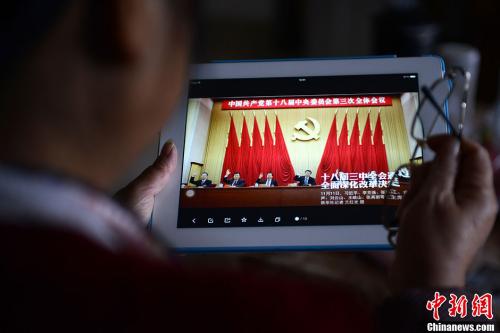
China News Agency issued Zhang Wave photo
— — Redeployment of the Third Plenary Session
In January this year, the Second Plenary Session of the 19th CPC Central Committee will be held. According to the practice in recent years, every session of the CPC Central Committee holds seven plenary sessions. In addition to the second plenary session, the third plenary session will be held in the second half of the year.
In China’s political vocabulary, the "Third Plenary Session" is almost synonymous with China’s reform. Since the Third Plenary Session of the Eleventh Central Committee in 1978, the eight Third Plenary Sessions held in 40 years have had an important impact on China’s reform and development. In 2013, the Third Plenary Session of the Eighteenth Central Committee opened a new course of comprehensively deepening reform in China.
This year coincides with the 40th anniversary of reform and opening-up. Under the new historical coordinates, what new plans and new arrangements have been made for China’s reform, which is highly anticipated.
— —Four home diplomacy, including the Shanghai Summit.
In recent years, many heavyweight international summits have been held in China, and China’s home diplomacy has attracted worldwide attention.
2018 is the first year of China’s diplomacy after the 19th National Congress. Foreign Minister Wang Yi also revealed to the media a few days ago that in 2018, China will do its best to host the Boao Forum for Asia, the Shanghai Cooperation Organization Summit, the China-Africa Cooperation Forum and the China International Import Expo, creating a new chapter of win-win cooperation between China and other countries in the world.
Among them, China International Import Expo was held for the first time. A few days ago, at the opening ceremony of the 2017 Symposium on International Situation and China Diplomacy, Wang Yi said that the first China International Import Expo to be held in Shanghai in 2018 would be the first one specially held for imports in the world, showing the world that China is willing to open its own market and let other countries share China’s development opportunities.
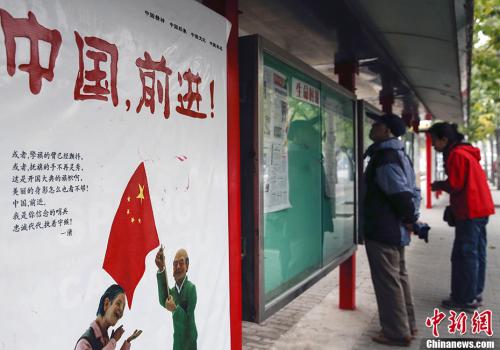
China News Agency issued Zhang Hao photo
These time nodes are important.
— — 40 years of reform and opening up
In 1978, the Third Plenary Session of the Eleventh Central Committee of the Communist Party of China closed in Beijing, and China entered a new historical period of reform and opening up.
"Reform and opening up is a key measure to determine the fate of contemporary China." In the past 40 years, China’s economy has made remarkable achievements, and its society has undergone earth-shaking changes. Especially since the 18th National Congress, China has promoted comprehensive and deepening reforms with unprecedented determination and strength.
Forty years later, standing at the starting point of Socialism with Chinese characteristics’s new era, how to take the road of reform and opening up in the future has attracted worldwide attention.
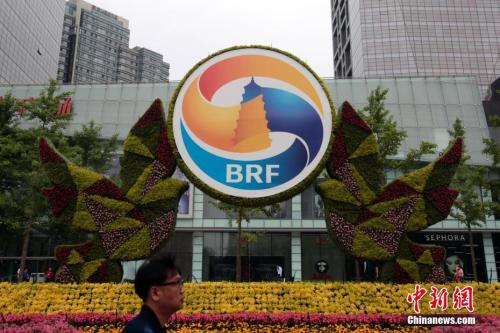
China News Service reporter Cice Li photo
— — The 5th anniversary of the Belt and Road Initiative
In 2013, the Supreme Leader of president, China, went to Kazakhstan in the west and Indonesia in the south, and put forward the Silk Road Economic Belt and the 21st Century Maritime Silk Road. After a thousand years, the magnificent picture of the Belt and Road was once again rolled out.
Over the past four years, the Belt and Road Initiative has resonated widely in the international community, with the active support and participation of more than 100 countries and international organizations around the world. It is the largest public product provided by China to the international community so far.
At the age of 5, how the "Belt and Road" connects the world and benefits the world has attracted much attention.
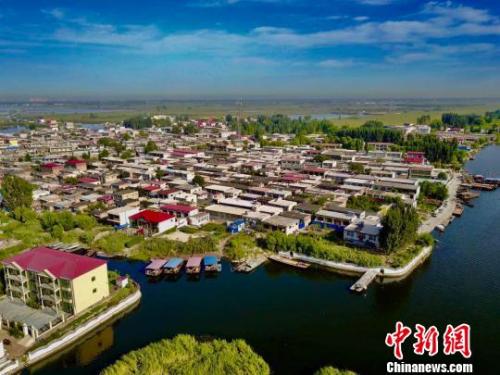
— — Xiong’an new area is over one year old.
Xiong’an new area, known as the "Millennium Plan", is another new district with national significance after Shenzhen Special Economic Zone and Shanghai Pudong New Area, and it is an important decision-making arrangement made by the Central Committee of the Communist Party of China to further promote the coordinated development of Beijing, Tianjin and Hebei. In the past 2017, the construction of xiong’an new area has been steadily advanced, and many enterprises, universities and hospitals have moved in.
The Central Economic Work Conference held not long ago made it clear that it is necessary to "make a good plan for xiong’an new area with a high starting point and high quality". Looking into the future, it is worth observing how xiong’an new area can promote the development of regional economy and how to make Yanzhao flourish.
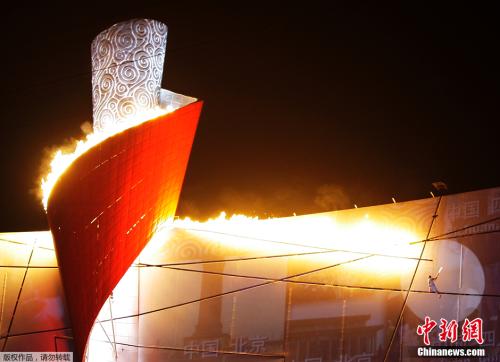
— — 10th anniversary of Beijing Olympic Games
"Welcome to Beijing, anyone who has a dream is great … …” Now, when this familiar song is sung again, nearly ten years have passed since the Beijing Olympic Games.
Beijing Olympic Games has brought profound changes to China society — — China, in the post-Olympic era, has started the upsurge of national fitness, and the square dance in the streets has become a business card for a vibrant China. In the eyes of the whole people, this year, China athletes will compete in major competitions such as Pyeongchang Winter Olympics and Jakarta Asian Games.
After receiving the Olympic flag at the closing ceremony of PyeongChang Winter Olympics, the winter Olympic cycle will officially enter "Beijing time" — — The Beijing Winter Olympics to be held in 2022 is the first time in China’s history, and Beijing and Zhangjiakou are stepping up preparations.
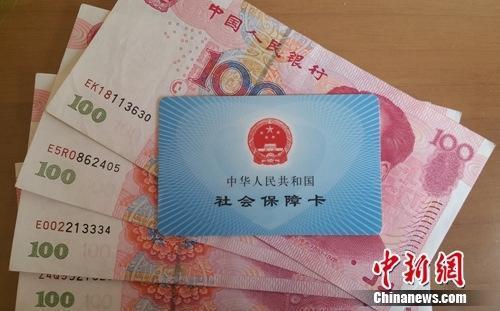
Zhongxin. com reporter Li Jinlei
These people’s livelihood hotspots should be paid attention to.
— — Old-age insurance opens national co-ordination
At present, endowment insurance is basically at the level of provincial overall planning. According to the requirements of the Central Economic Work Conference, this year, we should speed up the national overall planning of endowment insurance.
According to the information disclosed by the Ministry of Human Resources and Social Security, in 2018, the national overall planning for endowment insurance will take the first step. First, the central adjustment system of basic endowment insurance funds will be implemented to balance the burden of endowment insurance brought about by the excessive difference in dependency ratio between regions due to population structure, especially population mobility, and to adjust the surplus and deficiency, so as to further play the role of mutual assistance and mutual assistance of endowment insurance throughout the country.
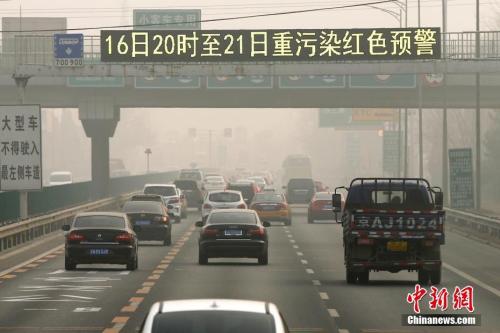
China News Service reporter Futian photo
— — Three tax laws will be formally implemented.
This year, three tax laws will be implemented. Among them, the "Environmental Protection Tax Law" came into effect on January 1, 2018, and the sewage charge system that has been in operation for more than 30 years has become history. As a brand-new tax, environmental protection tax was officially levied on January 1. The environmental protection tax will all be used as local income.
In addition, the Tobacco Leaf Tax Law and the Ship Tonnage Tax Law will be implemented on July 1, 2018. These two are tax laws that have been upgraded from temporary tax regulations to laws. According to the translation of tax standards, tobacco tax and ship tonnage tax legislation did not add tax burden.
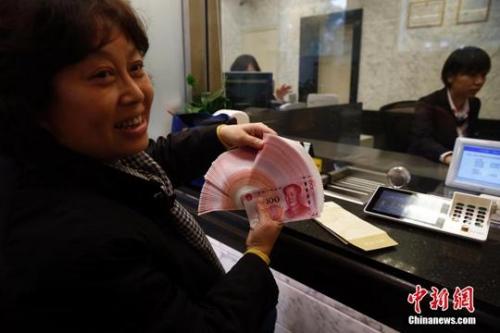
China News Service reporter Zhang Hao photo
— — Add new sources of retirement income
Since February 1, 2018, the "Enterprise Annuity Measures" will be officially implemented. The expenses required for enterprise annuity shall be paid jointly by the enterprise and individual employees. The enterprise payment shall not exceed 8% of the total wages of the employees of the enterprise every year.
Employees’ participation in enterprise annuity is conducive to adding a pension accumulation on the basis of basic old-age insurance, and further improving the income level and quality of life after retirement.
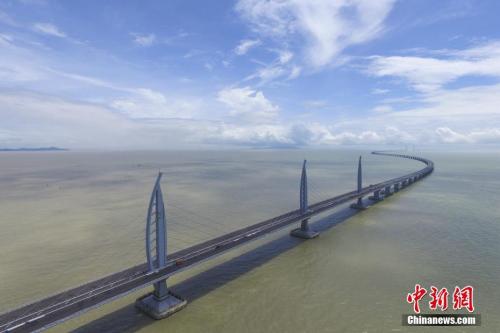
China News Service reporter Chen Yushe
These big projects are very eye-catching
— — The Hong Kong-Zhuhai-Macao Bridge is expected to open to traffic.
After more than eight years of construction, the Hong Kong-Zhuhai-Macao Bridge, known as the "Everest" in the bridge industry, is now in the final stage, and this highly anticipated bridge is expected to be officially opened to traffic in the New Year.
After the Hong Kong-Zhuhai-Macao Bridge is completed and opened to traffic, it will realize the land connection between Zhuhai, Macao and Hong Kong for the first time, greatly shortening the distance between Hong Kong, Zhuhai and Macao. By then, the transportation time from Zhuhai to Hong Kong will be shortened from about one hour by water and more than three hours by land to 20 to 30 minutes.
As the completion and opening time of the Hong Kong-Zhuhai-Macao Bridge is getting closer and closer, the construction of Guangdong-Hong Kong-Macao Greater Bay Area has entered the "fast lane".
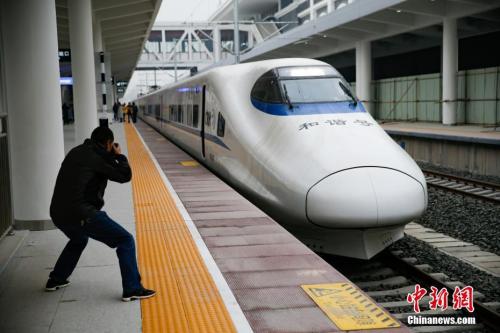
China News Service reporter He Junyi photo
— — Chongqing-Guizhou railway opened
At the end of last month, the capacity expansion and reconstruction project of Chongqing-Guiyang Railway (Chongqing-Guiyang Railway) entered the operation test stage in an all-round way and is expected to be officially opened around the middle of this month.
With the completion of the Chongqing-Guiyang Railway, Chengdu-Guiyang will be shortened from the current fastest 11 hours to 3.5 hours, and this railway has also become the "fast lane" connecting northwest, south and east China in southwest China.
According to the introduction of the Ministry of Communications a few days ago, in 2018, it will accelerate the construction of railways and intercity railways in the central and western regions, and promote the construction of Zhengzhou-Wan high-speed railway, Yinxi high-speed railway, Hangzhou-Wenzhou railway and Jingxiong high-speed railway. It can be expected that in the new year, more high-speed rail lines will bring practical convenience to people’s lives.
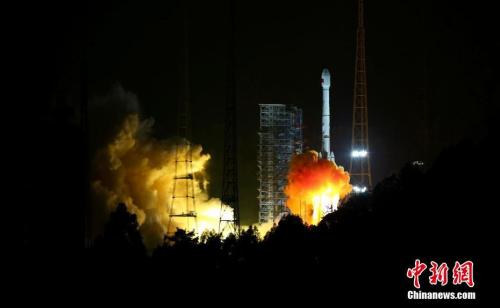
China News Agency issued Li Jinshe
— — The Beidou-3 system was basically completed.
The ground is in full swing, and the sky is not far behind. Combing many big projects in China in 2018, Beidou system construction has attracted much attention.
According to the plan, China will basically build the Beidou-3 system by the end of 2018, giving priority to providing services along the Belt and Road, and finally build a world-class global satellite navigation system by the end of 2020.
Since the Beidou satellite navigation system was opened for more than five years, its capabilities have been continuously enhanced and it has become a "national business card".
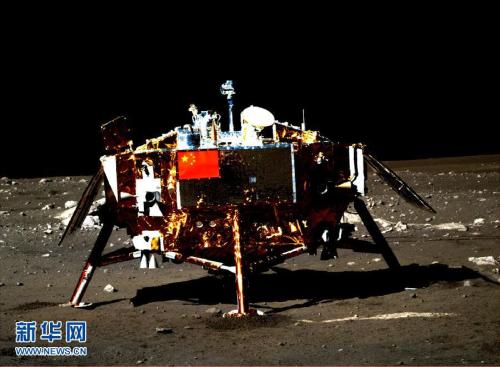
— — Chang ‘e IV flew to the moon.
2018 is very important and wonderful. If you are lucky, your message may fly to deep space!
The mission of China’s lunar exploration project Chang ‘e-4 is scheduled to be launched twice in 2018: the Chang ‘e-4 relay star will be launched in the first half of the year and the Chang ‘e-4 detector will be launched in the second half. From December 19, 2017 to March 6, 2018, the Center for Lunar Exploration and Aerospace Engineering collected messages from people all over the world. The names of all participants and the preferred 20,000 messages will be carried on the Chang ‘e-4 relay star and fly to deep space to start a lunar exploration trip.
Chang ‘e IV will realize the first soft landing and patrol survey on the back of the moon. China’s lunar exploration project is planned to be in three phases of "circling, falling and returning", in which the task of the second phase is to realize a soft landing on the lunar surface and automatic patrol survey. (End)
